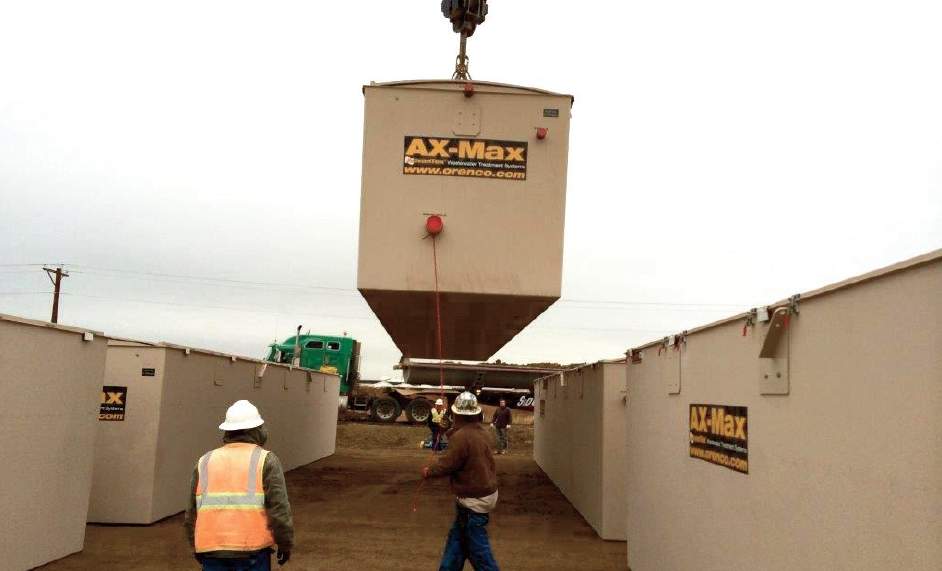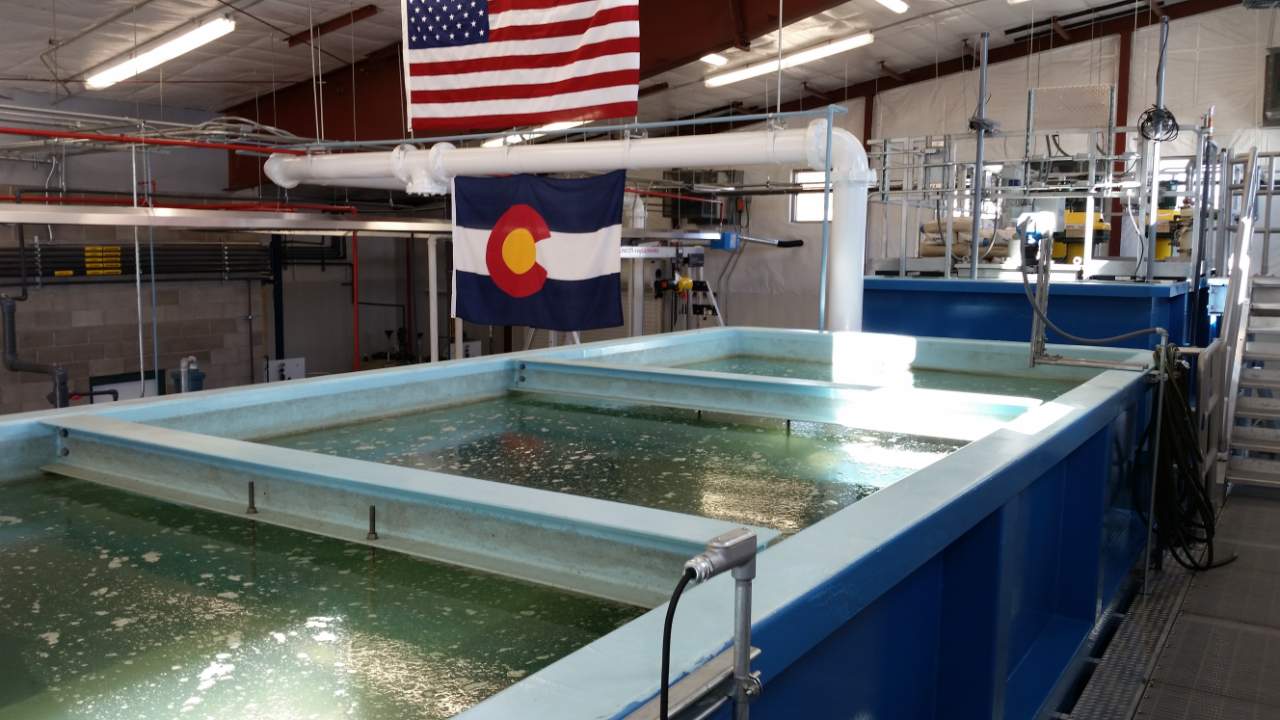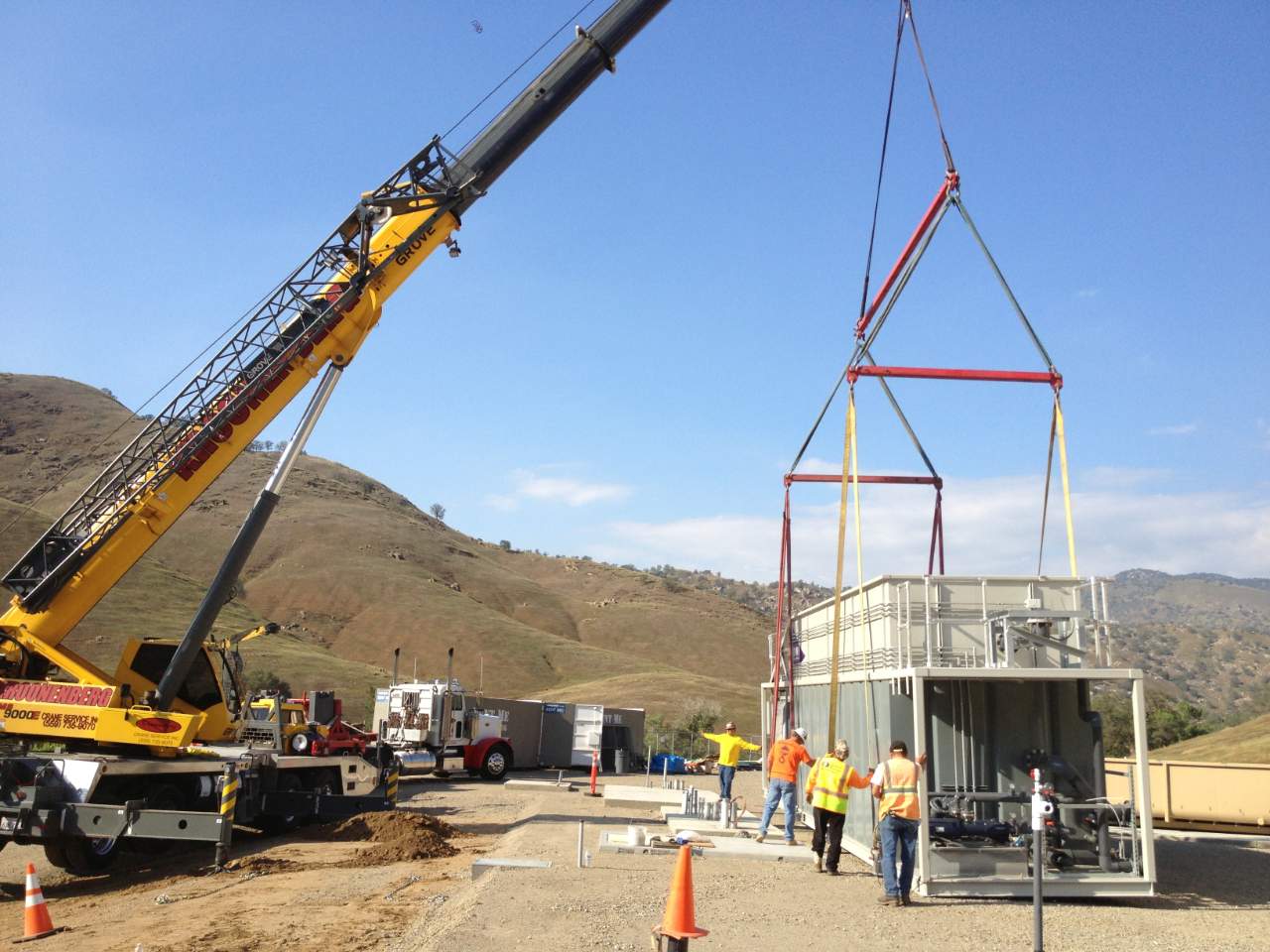IWS Installs Largest Orenco AX-Max System in the United States

LOCATION: Texas
PROJECT TYPE: Residential Developments
SERVICE: Engineering / Permitting
TECHNOLOGY: Activated Sludge, Textile Filter
SUSTAINABLE / WATER REUSE: Landscape / Subsurface Irrigation
DESCRIPTION: Integrated water Services, Inc. (IWS) performed engineering and permitting for the River Crossing Carriage Houses Wastewater Treatment Facility located in Comal County off of US 281 just north of state highway 46 in the Canyon Lake area. The River Crossing Carriage Houses (WTF) originally consisted of a small 16,500 gpd aerated ATU that served a small cluster of homes. The project owner, a local utility company, was interested in expanding the treatment plant and disposal system so that it could accommodate and treat wastewater from future development along US 281, a prime focus of residential and commercial growth.
The IWS scope of work included applying for and obtaining a major amendment expanding the original permit to an Interim phase of 60,000 GPD and a final phase of 150,000 GPD. Because development is expected to occur over several years, different treatment technologies were permitted in order to allow the project owner to implement the most cost effective treatment technology during different phases of development. For the interim phase up to 60,000 GPD, the owner is permitted to construct recirculating textile filters to treat the wastewater which are very cost effective in lower flow volumes. Once the project surpasses the 60,000 GPD mark, an activated sludge plant is permitted for flows up to 150,000 GPD. The activated sludge process is more cost efficient for larger flows.
 The River Crossing project will dispose of highly treated effluent on a golf course adjacent to the treatment plant location. By utilizing treated effluent for irrigation of the golf course, millions of gallons of potable water will be saved each year once the treatment plant is running at capacity. Given the topographical difficulties typically encountered in the Texas Hill Country including rocky and hilly terrain, conventional sewer collection and treatment is very cost prohibitive. By comparison, small decentralized wastewater treatment facilities such as the River Crossing WTF can enable development to occur by providing cost effective means to collect and treat wastewater.
The River Crossing project will dispose of highly treated effluent on a golf course adjacent to the treatment plant location. By utilizing treated effluent for irrigation of the golf course, millions of gallons of potable water will be saved each year once the treatment plant is running at capacity. Given the topographical difficulties typically encountered in the Texas Hill Country including rocky and hilly terrain, conventional sewer collection and treatment is very cost prohibitive. By comparison, small decentralized wastewater treatment facilities such as the River Crossing WTF can enable development to occur by providing cost effective means to collect and treat wastewater.
For more information, please click here to Contact Our Experts.
![]()
download IWS Secures TCEQ Permit for Texas Hill Country Project pdf (594kb)
Sign up for the
Integrated Water Services newsletter.
We share important perspectives and news on MBR wastewater treatment every two weeks.



